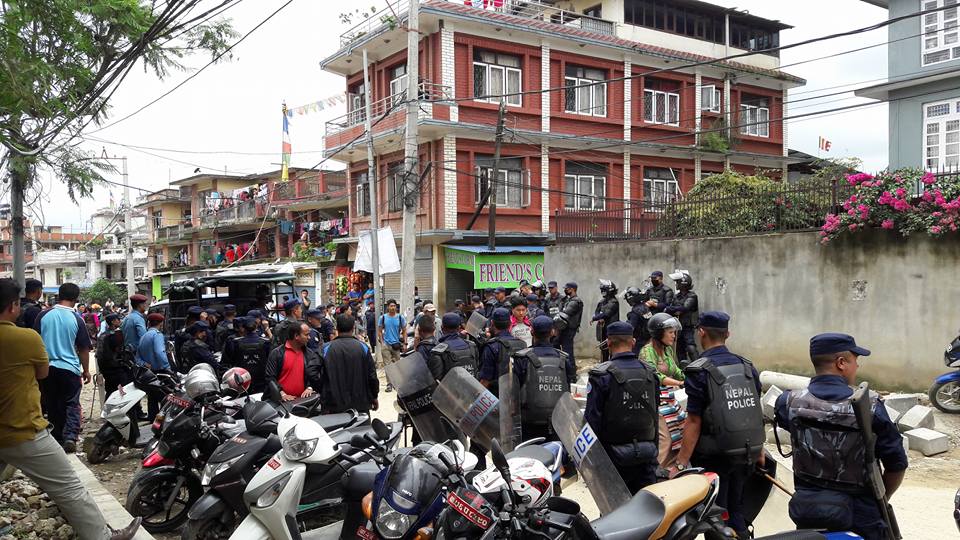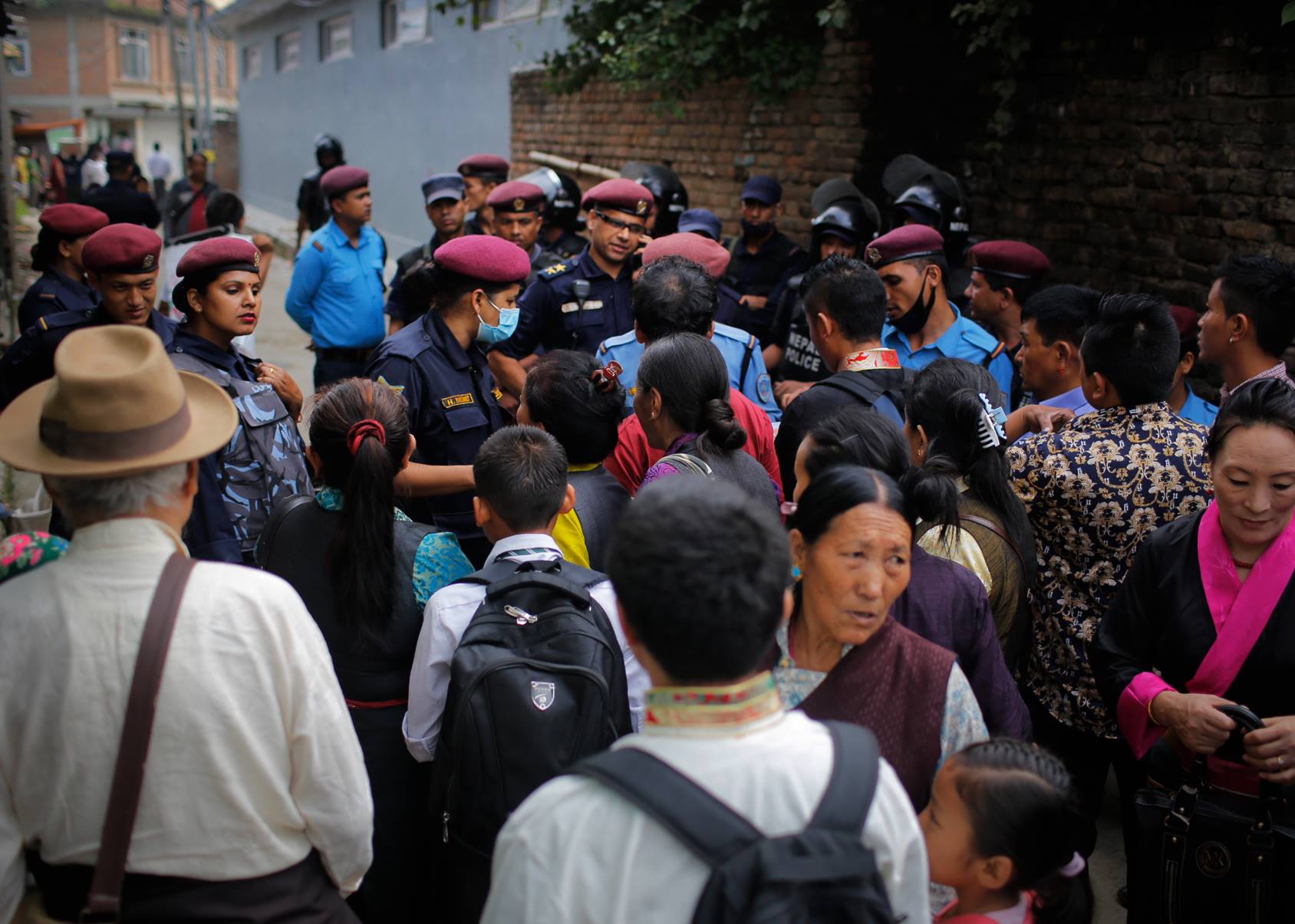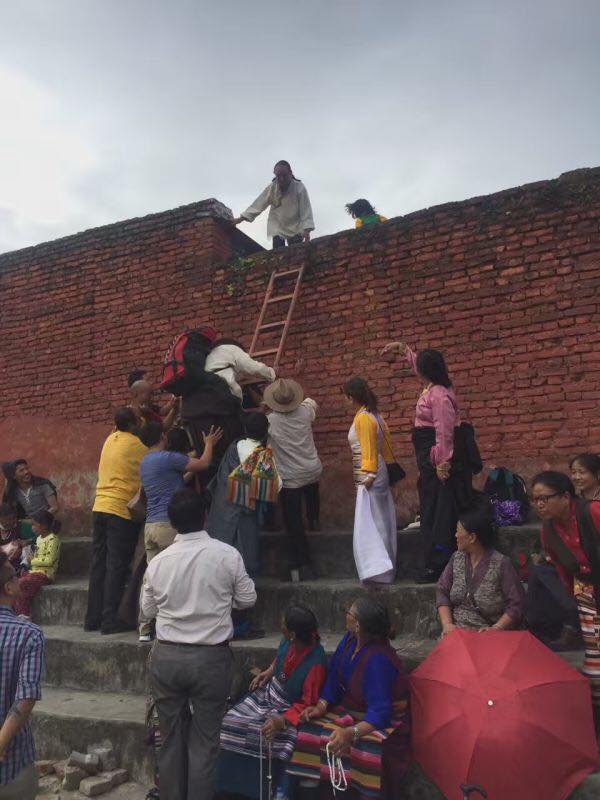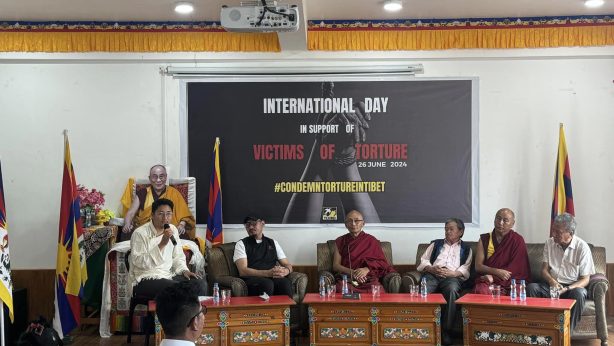TCHRD condemns detention of Buddhist Believers for celebrating Dalai Lama’s birthday in Nepal
 The Tibetan Centre for Human Rights and Democracy (TCHRD) condemns the detention of Tibetan Buddhist believers and disruption of the 81st birthday celebration of the Tibetan spiritual leader His Holiness the Dalai Lama on 6 July 2016 at Srongtsen Bhrikuti Tibetan School located at Boudhanath area in Kathmandu, Nepal.
The Tibetan Centre for Human Rights and Democracy (TCHRD) condemns the detention of Tibetan Buddhist believers and disruption of the 81st birthday celebration of the Tibetan spiritual leader His Holiness the Dalai Lama on 6 July 2016 at Srongtsen Bhrikuti Tibetan School located at Boudhanath area in Kathmandu, Nepal.
The Kathmandu-based NGO Human Rights Organisation Nepal (HURON) informed TCHRD that the local police detained 30 people including 28 Tibetans on the morning of 6 July for participating in the religious event to celebrate His Holiness the Dalai Lama’s birthday. Nine Tibetans were arrested around 11 am at Srongtsen School and an additional 19 were arrested outside the school, and then taken to Mahindra Police Club. Around 5 pm, the 30 detainees were released and handed over to HURON.
Among the detained was Mr Kalsang Dhondup, Tibetan settlement officer of Boudhanath, who was subjected to threats, interrogation and mental torture at three different locations viz., Boudhanath police station, Gaushala police station and Mahindra Police Club, HURON said. In his interview soon after detention, Mr Dhondup said he was treated like a criminal and kept in a cell and interrogated for hours. He was threatened and ordered to cancel the birthday celebration. His interrogators also blackmailed him that if he did not stop the program, they would imprison him for many years for anti-national activities. They made him call his wife and HURON officers about the threat and the danger he faced if the program was not cancelled.
Local authorities made attempts to stop Tibetans from attending the event. The police barricaded the main road of Jawalakhel Tibetan Refugee camp and blocked the entrance to Srongtsen School forcing many to jump the wall and use the back entrance door to participate in the event. Police were seen patrolling and conducting surprise checks and frisking people around Swoyambhunath area. Police presence was also seen at Swayambhu Pangshang Nunnery, Tibetan Refugee Camp and Bhagwanpau. Despite the restrictions, more than 2000 people including Tibetans and Nepalese citizens attended the event.
In his interview, Mr Kalsang Dhondup said the organisers had sought permission from the Chief District Officer (CDO) of Boudhanath two weeks before the event. A verbal permission was granted as usual and things went smoothly until the morning of 6 July. At 6.30 am on 6 July, the local police force led by the Boudhanath Deputy Superintendent of Police (DSP) suddenly arrived at the celebration venue along with about 30 police officers, citing orders from the CDO which in turn received orders from the Home Ministry to stop the birthday celebration. The DSP ordered the organisers to close down the celebration even before it had begun. The police issued threats that force would be used to take down the portraits of the Dalai Lama and close the event. With the intervention of HURON, the Boudhanath DSP agreed to let the organisers hold the ritual ceremony silently but not the cultural program that was to follow later. After much discussion, the religious ritual was carried out without any disturbance from the police. The program, scheduled to start at 9 am, was delayed and the ritual ceremony could only begin at around 11 am. At 10 am, an additional 100 police officers along with two more DSP officers had been deployed at the venue.
TCHRD believes that the detention was arbitrary and unlawful and the disruption of the religious event reflects badly on the democratic character of Nepal. Article 26 (1) of the Nepalese Constitution affirms that “every person who has faith in religion shall have the freedom to profess, practice and protect his or her religion according to his or her conviction”. Nepal ratified the International Covenant on Civil and Political Rights (ICCPR) in 1991. Article 18(1) of the ICCPR states, “Everyone shall have the right to freedom of thought, conscience and religion. This right shall include freedom to have or to adopt a religion or belief of his choice, and freedom, either individually or in community with others and in public or private, to manifest his religion or belief in worship, observance, practice and teaching.” Article 17 (1) of the Nepalese Constitution stipulates that “no person shall be deprived of his or her personal liberty except in accordance with the law.” Likewise, Article 9 of the ICCPR further states, “Everyone has the right to liberty and security of person. No one shall be subjected to arbitrary arrest or detention. No one shall be deprived of his liberty except on such grounds and in accordance with such procedure as are established by law.” The ICCPR in Article 19 grants freedom of expression to all persons regardless of their political status or nationality.
Since 2008, Nepal has come under extreme pressure from China to adhere to “One China” policy which, among others, means giving little or no space for Tibetans in Nepal to express peacefully their political and cultural identity. In a 2014 report titled, “Under China’s Shadow: Mistreatment of Tibetans in Nepal,” Human Rights Watch concluded that “Tibet-related matters remain China’s top concern in Nepal.”
TCHRD appeals to the Nepalese government to refrain from violating the basic human rights of local Tibetans. Nepal is a sovereign and democratic nation, with a long and tolerant tradition of coexisting with different cultural and religious groups. His Holiness the Dalai Lama’s birthday celebration was a religious event organised by Buddhist believers to offer prayers for the long life of their spiritual leader. TCHRD urges the Nepalese authorities to respect the religious sentiments of Tibetan Buddhists and cease actions that violate the human rights of an already marginalised community.


